Africana Studies Celebrates Powerful History and Looks to the Future, at 50th Anniversary Event
CSUN’s Department of Africana Studies gathered for a two-day celebration of its 50th anniversary, including discussions of historical moments in the creation of the department and the Black House, African drumming, gospel music, and ceremonies of appreciation for elders and pioneers.
“These events represent the culmination of the arc of our celebration,” said Department of Africana Studies Chair Theresa White. “It’s an arc because there are several critical events and pivotal moments that brought about the development of the Department of Africana Studies.”
She was speaking on Nov. 4, the second day of the celebration, titled “Preserving Our Legacy: The Arc of Celebration Continues.” She highlighted the historic milestones that led to the department’s founding as Afro American studies, at what was then San Fernando Valley State College — including the fall 1968 protest, where students occupied the school’s administration building (now Bayramian Hall), the development of the department’s curriculum in spring 1969 and the official opening of the department in fall 1969. Leading up to this culminating event, the department has been celebrating 50 years of excellence since the fall 2018.
“I come to you with an attitude of gratitude,” White said. “We’ve been celebrating at every point … this is how we do it in Africana studies,” she said. “There are so many pivotal points, and we want to honor each and every one of them.”
“We need more black students on this campus,” she continued. “We need and want more students in the Africana studies department,” she said. “We need more faculty in the department who can support our initiatives, and our students.”
The celebration was part two of a two-day (Friday / Monday) event. The purpose was to celebrate the historical and momentous achievements of the department and its pioneers — and build on that legacy of five decades of black excellence and scholarship. White also talked about her hopes for the future, the department and the university at large. The program featured guest speakers and the one-man play “Malcolm, Music & His Message: What Would Malcolm Say to the Youth Today?” by speaker, writer and health coach Jermaine Hagan.
The University Student Union (USU) Northridge Center was packed for the Nov. 1 celebration. The event was moderated by Cedric Hackett ’95 (Counseling/Interviewing), ’00 (M.S., College Student Personnel Services), an associate professor and director of CSUN’s DuBois-Hamer Institute for Academic Achievement. He spent much of his speech thanking those responsible for making the event possible, both historically and by organizing the event.
“Our theme today, ‘Preserving Our Legacy, The Arc of Celebration Continues,’ memorializes the 50th anniversary of the department’s existence, while at the same time substantiating extended accounts of our epic achievement,” Hackett said. “We celebrate together the sacrifices of those that fought for a black studies department … and those who continue to advocate for change.”
Professor Tom Spencer-Walters performed an Honorary Elders Applied Leadership (HEAL) Libation ceremony. This type of ceremony honors those who have passed and, per tradition, liquid is poured into a living plant with each call to honor. Many in the room who were familiar with the tradition chanted “ashe” after each name and pour occurred. “Ashe” is the Yoruba word for the power behind all things in the universe, and the term is derived from traditional African religious roots. It is also commonly used in the same capacity as “Amen.”
Brittany Agorsah, a psychology major and research assistant for Hackett, expressed the event’s importance for CSUN students, spreading the word about the department and its programs, and the crucial role that cultural leaders like White play in shaping the future for African American students.
The celebration demonstrated “that we do have a strong, black leader [who is] a woman — and shows that majoring and minoring in Africana studies will take you somewhere,” Agorsah said, as heavy drums beat in the background at the Nov. 4 program. “Because that is something that a lot of students [question].”
Agorsah, who will be graduating in 2020 and plans to attend graduate school at the Chicago School of Professional Psychology, credited her minor in Africana studies with helping shape her future.
“Majoring and minoring in Africana studies isn’t really mentioned or talked about,” Agorsah said. “We want to get more students to come here and to major and minor [in Africana studies], and to branch off into society — because there is so much you can do with it.”

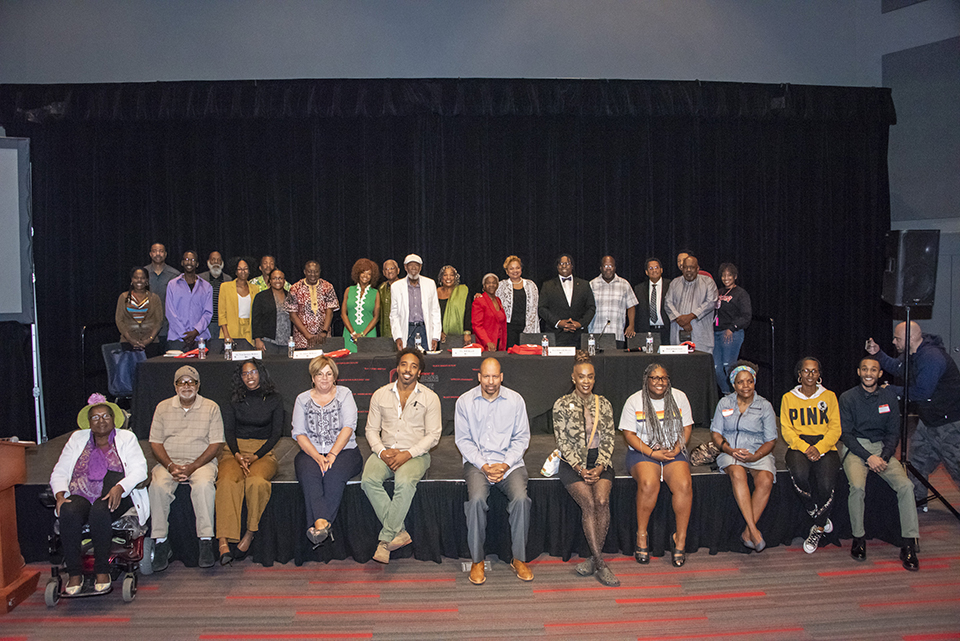
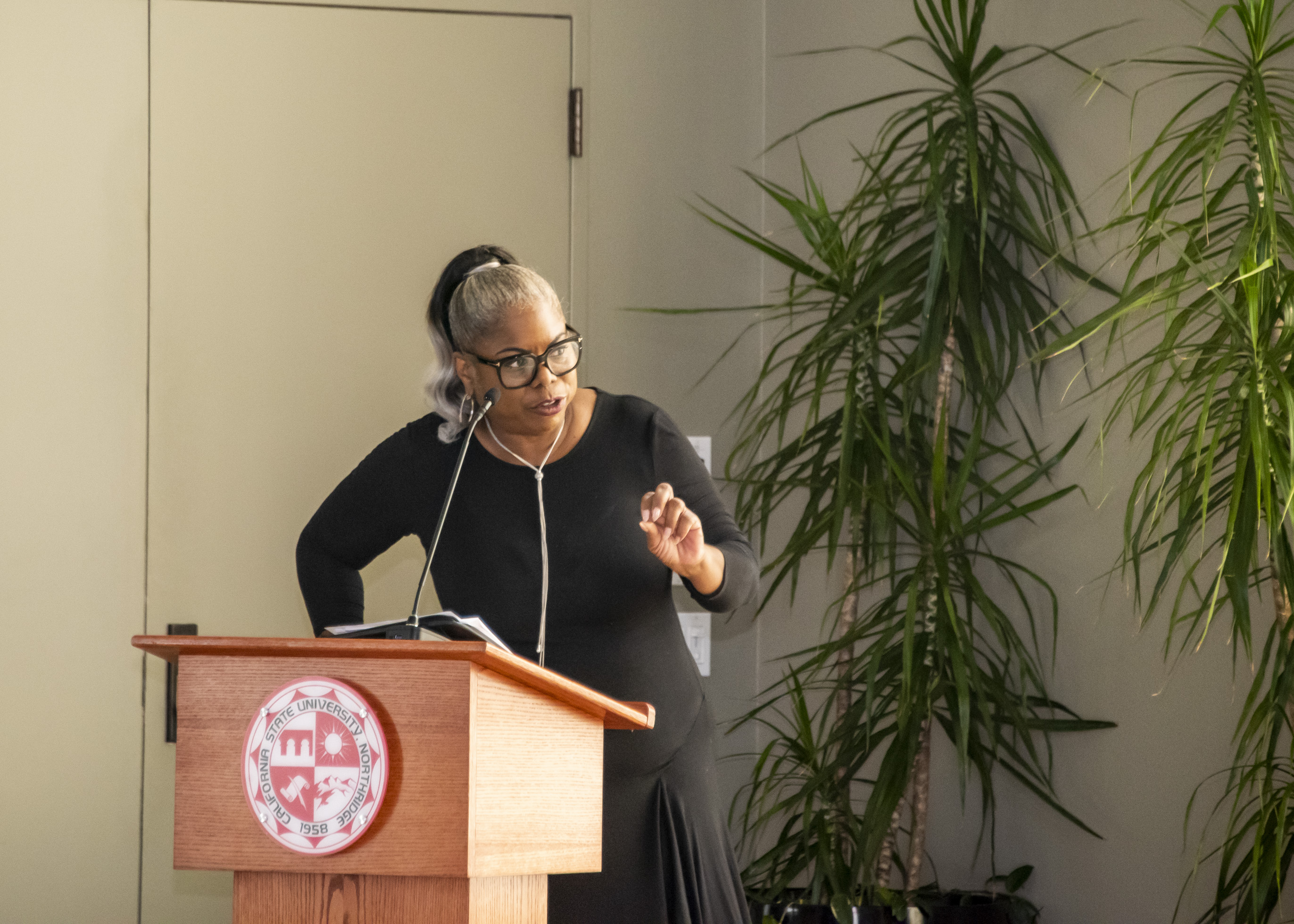
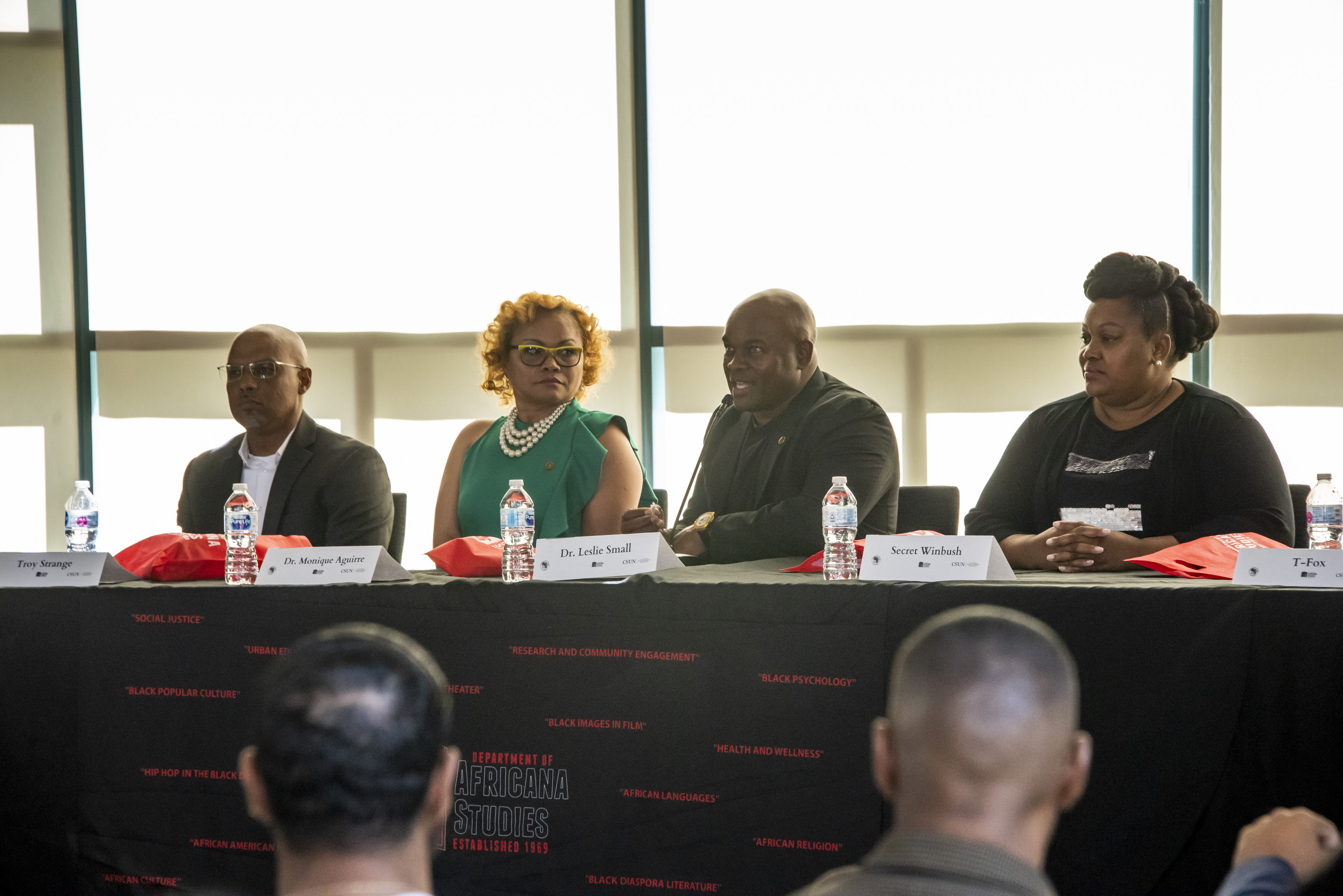
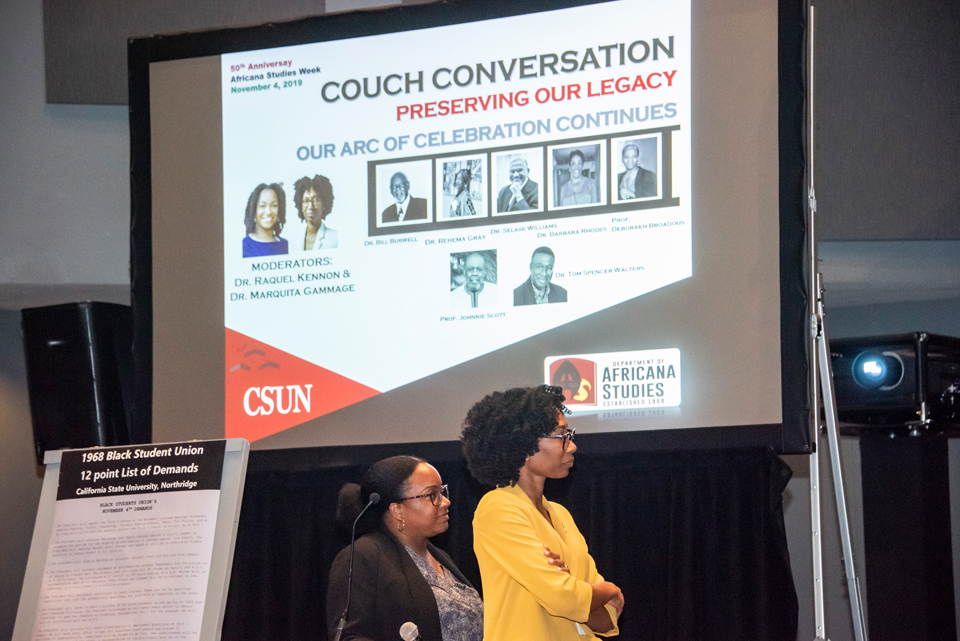
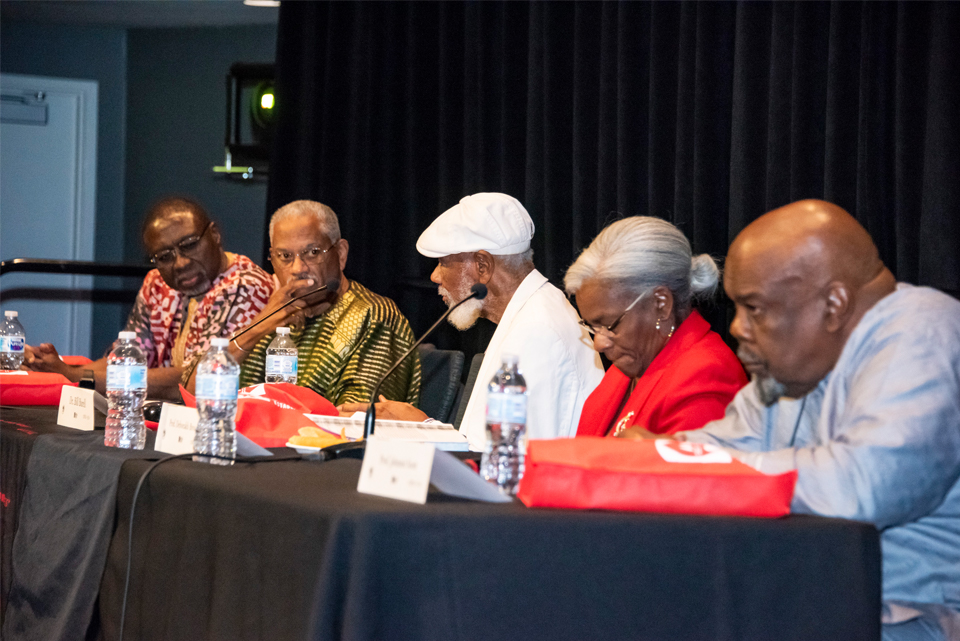
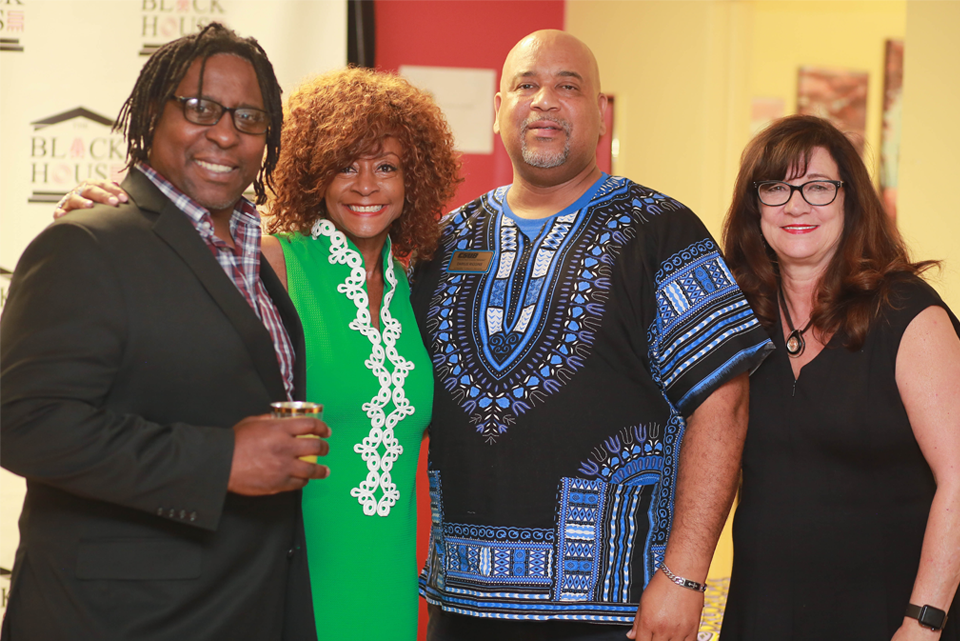
 experience
experience